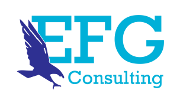The emirate is continuously striving to become one of the preferred destinations for all tourists, says Dubai Economy and Tourism chief
Dubai’s tourism sector is “back on track” as the emirate continues to implement high standards of hygiene, health and safety measures throughout the Covid-19 pandemic, and the emirate is well positioned to adapt to the future of travel in the post-Covid era, the chief executive of Dubai Economy and Tourism said.
The emirate hosted six million visitors in the 11 months from January to November 2021, sold 9.4 million room nights for domestic tourists alone and reopened 736 hotel establishments with around 135,000 rooms and recorded occupancy levels of 60 per cent, underscoring the global demand for travel and Dubai’s role in the recovery, said Issam Kazim, through video conferencing at the Dubai Accessible Tourism International Summit on Wednesday.
“Tourism in Dubai is back on track and this is the result of strategic measures taken … that enable our city to safely navigate and accelerate out of this unprecedented global challenge,” Mr Kazim said. “The citywide safety measures provide a strong position to overcome any current or new challenges.”
Dubai remains one of the few international tourism hubs still open for travellers during the peak holiday period that was disrupted globally by the Omicron variant of the Covid-19 virus.
In December, Dubai International Airport retained its position as the world’s busiest for international passengers, overtaking major hubs such as London’s Heathrow, as passenger traffic surged during the busy travel period. The emirate held on to the top spot with 3.54 million seats, about one million more than the next busiest airport, Heathrow, according to aviation consultancy OAG.
“As one of the first destinations to successfully open to international tourists, we are continuously striving to achieve the goal of becoming one of the preferred destinations for all tourists, including people of determination,” Mr Kazim said.
People of determination — people with special needs or disabilities — who comprise 15 per cent or one billion of the world’s population, represent a massive market opportunity to boost the global travel and tourism sector. However, further improvements are needed in legislation, facilities and staff training to tap into this potential, according to experts and stakeholders at the summit.
This figure is expected to double to two billion people by 2050, according to the World Health Organisation, making it even more crucial for businesses to address the inclusive travel segment. About 50 million people with special needs in the Middle East look forward to visiting cities and tourist destinations with appropriate services that meet their needs.
“I don’t know why they’re not looking for this money, we’re 15 per cent of the total population, we’re a big business for tourism,” Majid Usaimi, a member of the Higher Committee for Protection of Rights of Persons with Disabilities at Dubai Executive Council, told reporters on the sidelines of the summit. “It’s big money … make it accessible to everyone so you have tourists the whole year, it’s good for you.”
Co-ordination between stakeholders in the travel and tourism industry — from airlines, airports, hotels, entertainment venues, transport and others — is necessary to ensure seamless facilities for people of determination during their travels, he added.
The lack of adequate facilities and services causes the global economy to lose about €142 billion ($162.10bn) each year and 3.4 million jobs annually, Anna Grazia Laura, president of the European Network for Accessible Tourism, said.
“Accessibility, whether physical access or providing information, is likely to be an area of interest”, she said. “So the tourism sector will need to adapt to changing trends and the adoption of innovative approaches to accommodate the new demands and needs and preferences of emerging markets, according to their characteristics [and] behaviour.”
In a panel in which people of determination from various sectors gathered to provide their insights for more inclusive travel, they concluded the discussion with recommendations for about 20 initiatives for smoother journeys.
These included professional staff who are skilled in dealing with travellers of determination with their various needs at check-in points, security checks, passports and other points inside the airport facilities.
Other recommendations included providing guiding plates in sign language, providing sign language interpreters at airports to assist passengers with hearing impairments and providing bathrooms on board planes that are better equipped for special needs.
SOURCE: thenationalnews.com

